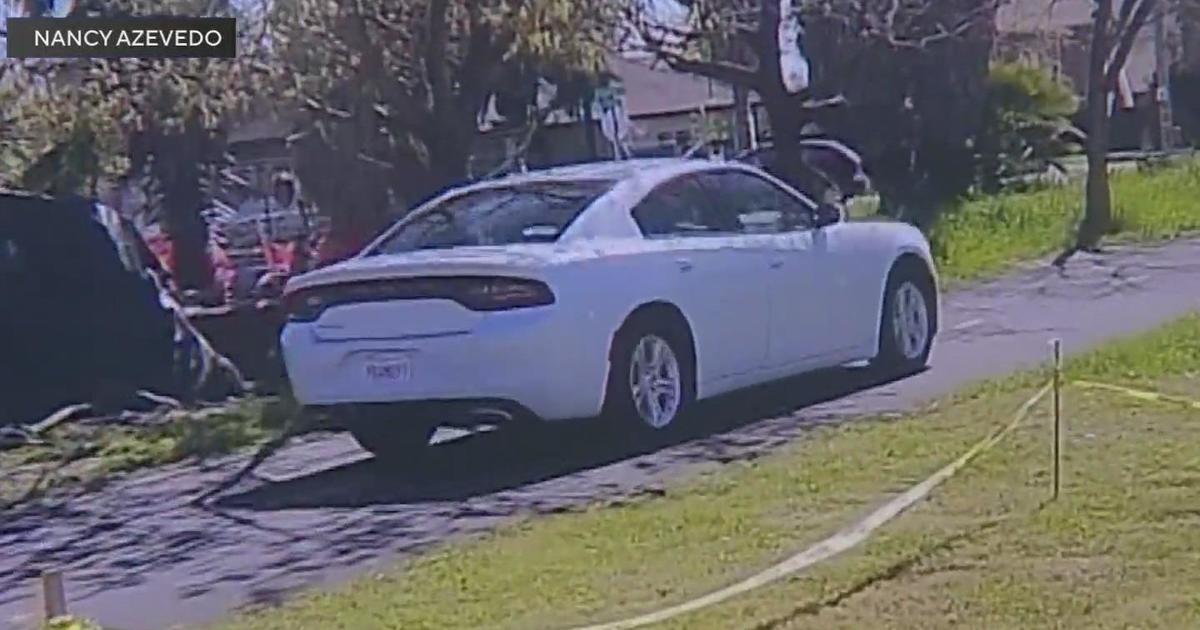Call Kurtis Investigates: Regional car theft spikes, fewer vehicles recovered. Where are they ending up?
SACRAMENTO — For close to four months, Serena Hullum had to bum rides, borrow cars, or take Ubers to get to her two jobs. Someone stole her KIA from her godmother's Rancho Cordova home.
"The police officer was like, 'Wow, the KIA boys got your car,' " she recalled.
Hullum was the victim of a TikTok challenge. Videos posted online show crooks taking advantage of a security flaw in certain KIAs and Hyundais allowing the car to start with a USB cord. She didn't know about the challenge until she was targeted.
"That was crazy to me," Hullum said.
Natalie Galecka woke up for her early morning ER shift to find her Hyundai gone. A doorbell camera shows the crooks stealing it from her Rosemont driveway in fewer than two minutes.
We pulled the data showing car theft rose 9% across the California Highway Patrol's Valley Division since 2019, before the pandemic. The territory spans Stockton to Chico and Yolo County to the Nevada state line. CBS13 requested the data by county.
Nationally, car theft jumped 25%, according to the National Insurance Crime Bureau.
"There's nothing that surprises me about it," said CEO David J. Glawe.
He said the supply chain issues from the pandemic make cars hot targets for crooks. The parts became more valuable. Catalytic converter prices alone shot up 300%.
Glawe said criminal reform is another component of the spike, with lower penalties for nonviolent crimes, like car theft. It's led to a list of questions.
"What is the enforcement and what are the statutes when they are prosecuted? What is the chance of being incarcerated? (Are) there juveniles involved? Are there resources for law enforcement and prosecutors? Some of the no bail, no cash bail policies are impacting that," he said.
"A lot of this started with the COVID-19 pandemic, and now we have to institutionalize policies to correct where we're at."
Of the cars stolen, we were curious how many ended up recovered.
According to figures from CHP's Valley Division, a recovery rate of 91% in 2019 dropped to 87% last year. So what happens to the rest of the cars?
We tried to get local CHP officials to sit down with us about the trend and any successes they are having to improve the numbers. They declined.
According to CHP reports to state lawmakers, investigations have found stripped car parts shipped out of state. Organized crime rings switch out Vehicle Identification Numbers and sell the cars. In some cases, crooks trade stolen cars for drugs. Some end up in shipping containers bound for places like China, Central America, Africa and the Netherlands.
The CHP said it has stepped-up X-ray scans of shipping containers at California ports and inspections at the Mexico Border. But as a CBS News Investigation found, sometimes it's hard to get cars back home once they reach Mexico.
More law enforcement agencies are now using license plate readers which help find stolen cars. Some drivers are finding success in leaving tracking devices like Apple Air Tags inside their cars.
"The first 72 hours is key," Glawe said. "But with GPS tracking and license plate readers, we're generally going to be able to find that vehicle fairly quickly."
Experts warn you not to approach a car thief you track down on your own. That's dangerous.
Galecka's insurance cut her a check for her stolen car. She now bought a new one.
Hullum's car was found damaged. Those same supply chain issues that drove up the value of her KIA also meant delays in getting the parts to fix it. She finally has it back.
"It feels great. I'm glad I don't have to stress, you know, about how I'm going to get to work," she said.





